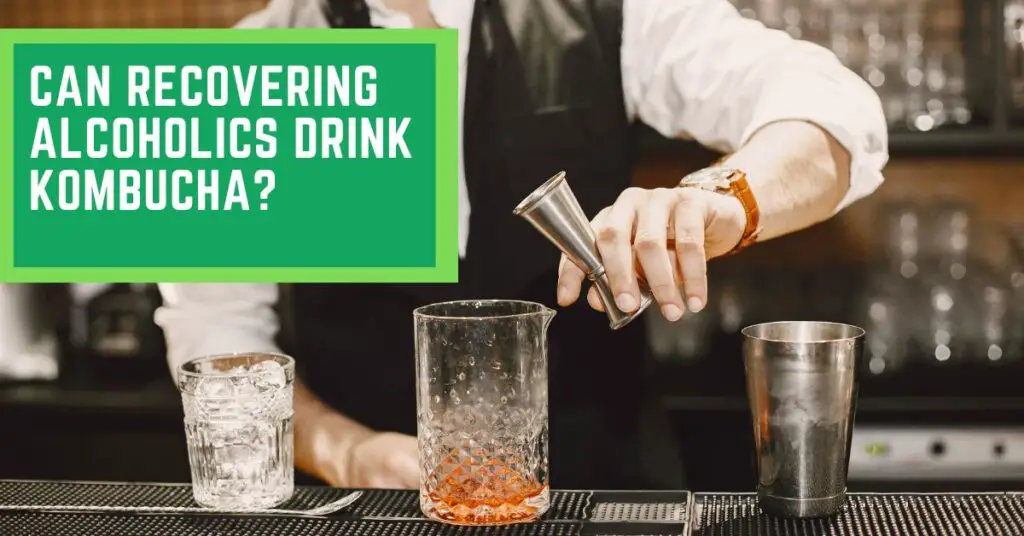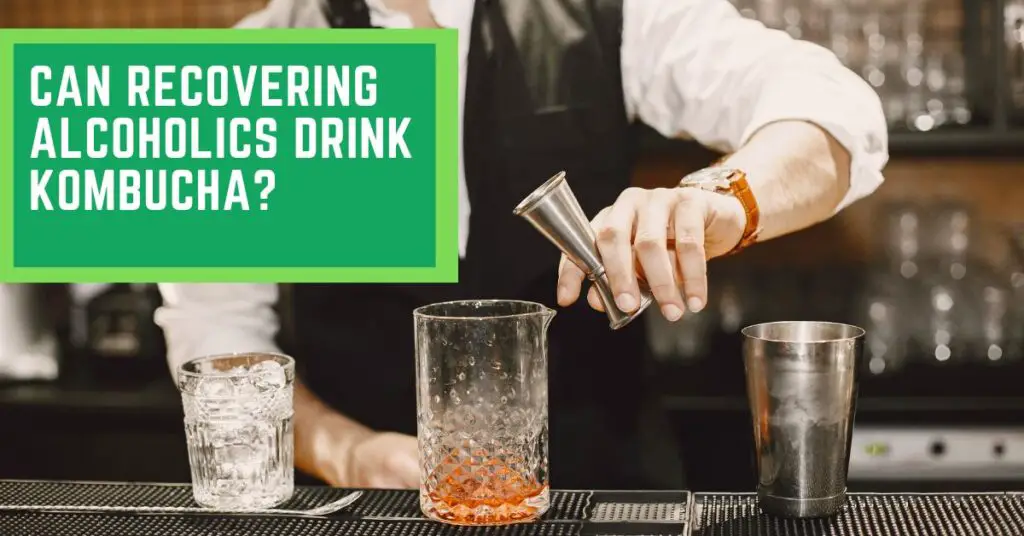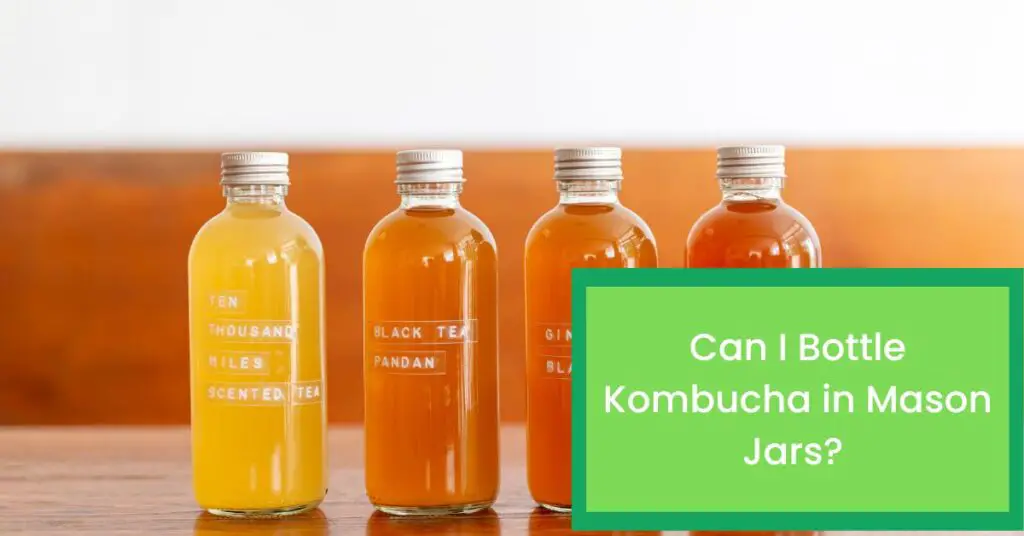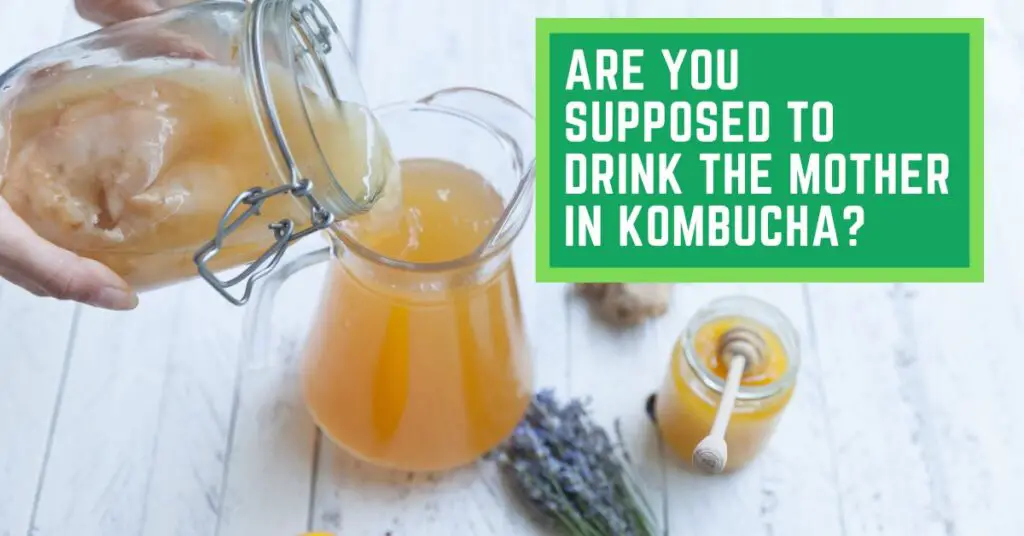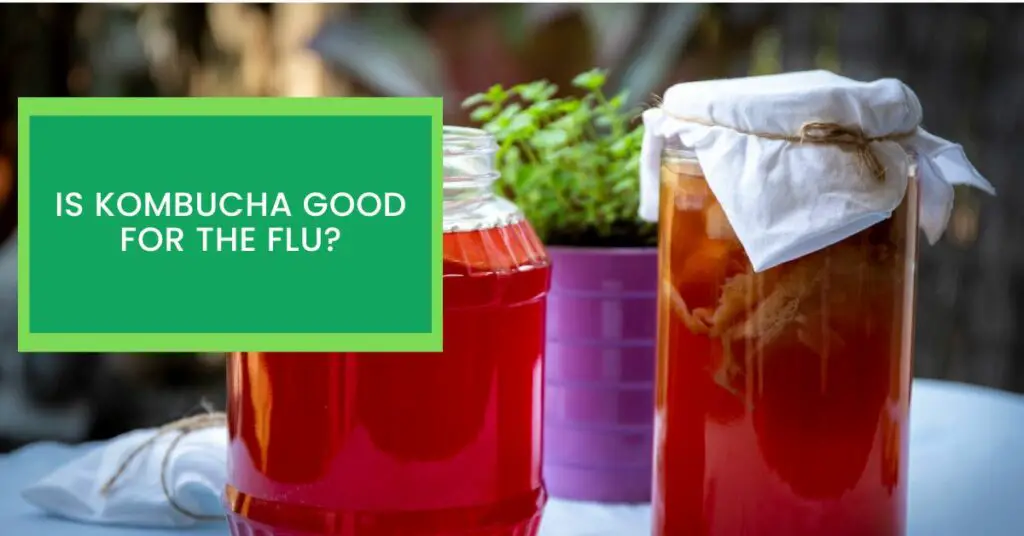Kombucha is a fermented tea that has been gaining popularity in recent years for its potential health benefits.
One question among most kombucha users is whether it’s safe for recovering alcoholics.
While kombucha does contain a small amount of alcohol, it is generally considered to be safe for people who are recovering from alcoholism.
In this article, we’ll take a closer look at kombucha, its alcohol content, and some other facts that decide if it’s something that recovering alcoholics should avoid.
The health benefits of drinking Kombucha
Kombucha is a fermented tea that has been around for centuries.
It is made by adding a specific type of bacteria and yeast to sweetened black or green tea. This fermentation process creates a probiotic-rich beverage that is full of health benefits.
Kombucha has been shown to boost gut health, improve digestion, and reduce inflammation. It is also a good source of antioxidants and can help boost your immune system. Kombucha has even been linked to weight loss and improved joint health.
If you are looking for a healthy beverage option, kombucha is a great choice. It is available in many different flavours and can be enjoyed by people of all ages. Give it a try today and see how it can benefit your health!
Is Kombucha Safe For Recovering Alcoholics?
Many people who are trying to recover from alcoholism turn to kombucha as a way to help them stay on the path to sobriety. But is kombucha actually safe for recovering alcoholics?
The short answer is yes, kombucha is generally safe for recovering alcoholics. However, there are a few things to keep in mind.
First of all, kombucha does contain a small amount of alcohol. However, the alcohol content is typically very low – around 0.5% or less. This is not enough to cause intoxication or trigger a relapse for most people.
While kombucha is generally safe for recovering alcoholics, there is always the possibility that it could trigger a relapse for someone who is particularly vulnerable. If you have any concerns, it’s best to consult with a doctor or addiction specialist before trying kombucha.
Can Alcoholics Benefit From Drinking Kombucha?
There is some evidence to suggest that kombucha can help heal the gut and improve liver function in people with alcohol addiction. Kombucha had reduced inflammation in their guts and better liver function than those that didn’t receive kombucha.
Kombucha is also a good source of antioxidants, which can help protect the body from damage caused by alcohol. It’s also possible that kombucha’s probiotic content may help to restore balance in the gut and improve.
While there is no cure for alcoholism, drinking kombucha may be a helpful step in recovery. If you’re struggling with alcohol addiction, talk to your doctor about whether kombucha could be a helpful addition to your treatment plan.
The Alcohol Content in Kombucha
While kombucha does contain some alcohol, it’s usually very low in alcohol content. However, there are some types of kombucha that have higher alcohol content.
So, how much alcohol is in kombucha? It depends on several factors, including the type of kombucha, how long it’s been fermenting, and what kind of yeast is used.
Generally speaking, most kombuchas have less than 0.5% alcohol by volume (ABV). However, there are some types of kombucha that can have up to 2% ABV.
If you’re concerned about the alcohol content in kombucha, you can always buy kombucha that’s been fermented for a shorter period of time. This will result in kombucha with lower alcohol content.
You can also look for kombucha that’s been made with a specific type of yeast that doesn’t produce as much alcohol.
The Risks of Drinking Kombucha For Recovering Alcoholics
Recovering alcoholics who drink kombucha may be putting themselves at risk for a relapse. Kombucha is a fermented tea that contains trace amounts of alcohol.
While the amount of alcohol in kombucha is typically very low, it can still trigger a craving for alcohol in people who are trying to stay sober.
For recovering alcoholics, even a small amount of alcohol can lead to a relapse. If you are trying to recover from alcoholism, it is best to avoid kombucha and other alcoholic drinks. There are many non-alcoholic beverages that you can enjoy without putting your sobriety at risk.
This includes fermented foods like sauerkraut and kimchi, which are also rich in probiotics. There are also many non-fermented options, such as herbal teas, that can provide similar benefits without the risk of triggering.
Tips For Incorporating Kombucha Into Alcoholics’ Diet
If you’re struggling with addiction, then you know that making dietary changes can be a key part of your recovery. And incorporating kombucha into your diet is a great way to improve your gut health and support your detoxification efforts. Here are a few tips for incorporating kombucha into your diet:
1. Start slow. If you’re new to kombucha, start by drinking just a few ounces a day. Gradually increase your intake as your body adjusts.
2. Drink it with meals. Kombucha is a great way to help improve digestion and nutrient absorption. So drink it with your meals or snack on it throughout the day.
3. Choose quality kombucha. When buying kombucha, look for brands that use high-quality ingredients and have a short fermentation time. This will help ensure that the kombucha is packed with probiotics and other beneficial compounds.
4. Be mindful of your sugar intake. Kombucha does contain sugar, so if you’re trying to cut back on sugar, be sure to choose a brand that has low sugar content. Or, you can make your own kombucha at home using a sugar-free recipe.
5. Drink in moderation. As with anything, it’s important to drink kombucha in moderation. Too much kombucha can cause digestive upset, so start slow and increase your intake gradually.
Following these tips will help you incorporate kombucha into your diet in a way that’s safe and supportive of your recovery. Cheers to your health!
Can You Get Addicted to Kombucha?
Some people swear by its health benefits, while others enjoy it for its unique taste. But can you get addicted to kombucha?
There is no definitive answer, as everyone’s body and brain chemistry is different. However, some experts believe that it is possible to become addicted to kombucha due to its high sugar content.
The fermentation process can also produce alcohol, which can lead to dependence if consumed in large quantities.
If you’re worried about becoming addicted to kombucha, try to watch your sugar intake and moderate your consumption. As with anything, it’s important to enjoy kombucha in moderation and consult with your healthcare provider if you have any concerns.
Frequently Asked Questions Related to Kombucha for Recovering Alcoholics
1. Can you have kombucha if you’re sober?
Yes, you can have kombucha if you’re sober. Kombucha is made from black tea and sugar, so it does contain a small amount of alcohol.
However, the fermentation process also produces carbon dioxide and ethyl acetate, which are the two things that give kombucha its characteristic sour taste.
So even if you consume a lot of kombucha, the alcohol content will still be too low to get you drunk.
2. Does drinking kombucha count as alcohol?
Kombucha is a fermented tea that contains a small amount of alcohol. However, the alcohol content is typically very low, around 0.5% or less.
So while drinking kombucha may technically count as consuming alcohol, it’s not likely to have any significant impact on your body or mind.
3. Does kombucha help with alcohol cravings?
Kombucha is a great way to curb alcohol cravings! The fermented tea drink is rich in probiotics and good bacteria, which help to promote gut health.
Drinking kombucha also helps to detoxify the body and clears out toxins that can lead to cravings. Testimonies from people who have given up alcohol cite kombucha as a helpful tool in their journey.
If you’re looking for a way to combat alcohol cravings, kombucha is definitely worth a try!
